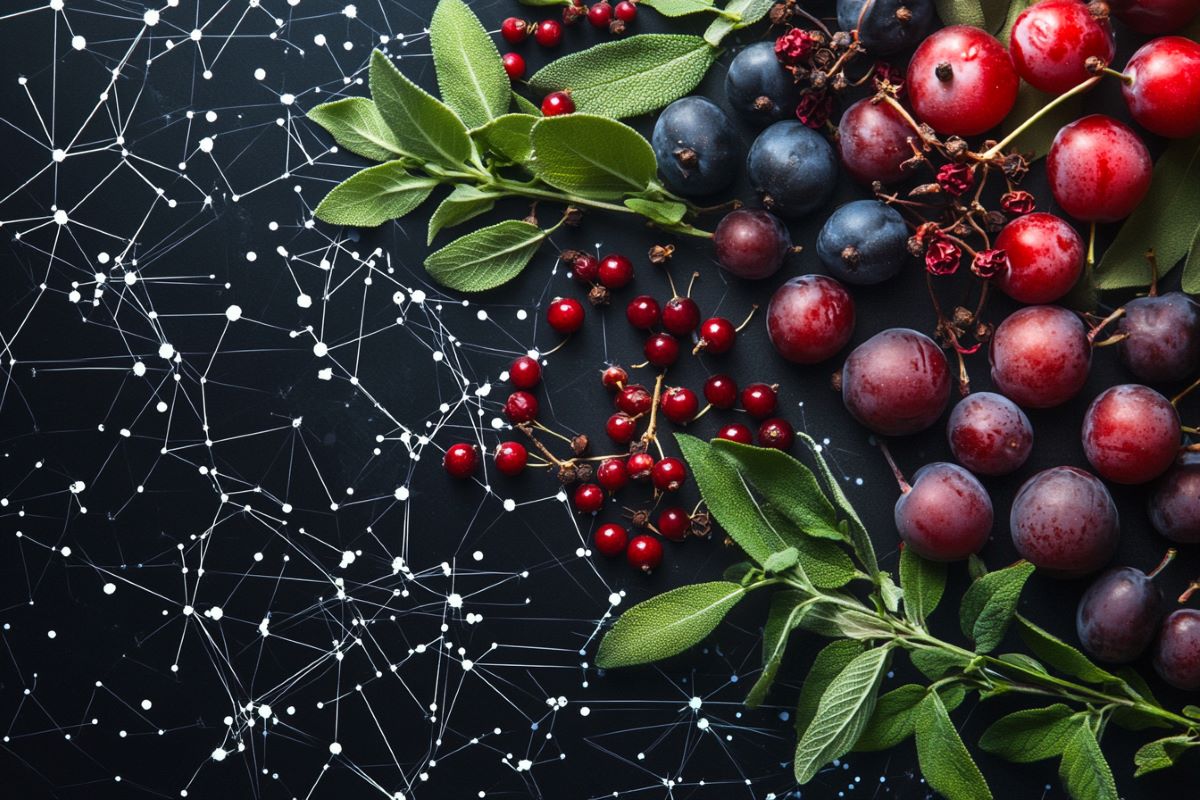Does your competent? doctor and hospital have enough functioning brain cells to see the word neuroprotection and realize this needs to be followed up to save brain cells immediately post stroke? NO? So, you DON'T have a functioning stroke doctor or hospital? RUN AWAY!
If your doctor has nothing on these maybe you want to ask when they will become competent in stroke rehab.
- sage
(5 posts to April 2016)
- lemon balm
(1 post to April 2016
- Bioactive Compounds from Elderberry: Extraction, Health Benefits, and Food Applications September 2022
Six Plant-Based Compounds Show Neuroprotective Potential
Summary: Researchers identified specific plant compounds that provide antioxidant and neuroprotective effects, contributing to brain health beyond basic nutrition. By analyzing plant-based foods like lemon balm, sage, and elderberry, scientists linked compounds such as phenolics and terpenes to benefits like reducing oxidative stress and scavenging harmful reactive species.
Quercetin-rich foods, such as Queen Garnet plum and clove, showed strong potential to prevent neuron-like cell damage. This study sheds light on how plant-based diets and supplements could support brain health and manage neuroinflammation-related conditions.
Key Facts:
- Phenolics and terpenes in plants show neuroprotective and antioxidant effects.
- Quercetin-rich foods prevent oxidative stress-induced neuron damage.
- Lemon balm, sage, and elderberry support brain health via distinct compound profiles.
Source: University of Wollongong
A new study by the University of Wollongong (UOW) has revealed why some plant-based foods have benefits beyond their nutritional value.
Led by Naomi May, a PhD candidate in the School of Medical, Indigenous and Health Sciences, the research found that different species of plant compounds were associated with various antioxidant effects, such as the ability to prevent oxidative stress-induced cell death in neuron-like cells, scavenge reactive oxygen and nitrogen species, and chelate metal ions. These contribute to neuronal damage and the progression of brain illnesses.

While the benefits of plant-based diets are well known, the study, published in Food & Function, sought to uncover which compounds were responsible for the positive effects on the brain.
The paper was co-authored by Dr Jiahua Shi, Helen Clunas, Dr Julianna Lys de Sousa Alves Neri, Dr Celine Kelso, Dr Jody Morgan, Dr Yinghua Yu, Professor Karen Charlton, and Associate Professor Katrina Weston-Green from UOW.
The researchers were interested in the health benefits of various classes of plant compounds: phenolics, which can contribute to the plants colour, and terpenes, which are responsible for the flavour and fragrance of plants.
Naomi used mass spectrometry to measure the individual species of the plant compounds in order to determine which species are associated with various antioxidant and neuroprotective effects.
“Many plant-based foods have been shown to benefit our brain and overall health,” Naomi said. But until now, we haven’t known which complex mix of compounds packs the most punch.
“Why is lemon balm calming? How can sage help the body? Why are elderberries so beneficial to our immune system? We finally have data to begin to answer these questions.”
The research focused on six specific plant-based foods – Queen Garnet plum, black pepper, clove, elderberry, sage and lemon balm – and found they have antioxidant and protective effects on the brain. It also looked at over-the-counter complementary food supplements derived from these plants, including two blends rich in astralagus and lemon balm.
The astralagus supplement had the highest rates of phenolics, followed by the Queen Garnet plum, elderberry, and clove. In particular, these plant products were high in derivates of compound called quercetin, which was associated with an ability to prevent oxidative stress-induced cell death and chelate copper ions.
Black pepper had the strongest terpene concentration, followed by clove and sage, which was associated with an ability to reduce reactive oxygen species.
“This is the first research that has looked at the relationship between these species of compounds and different antioxidant abilities in these plants.
“We found significant positive relationships between the concentration of individual compounds measured and certain antioxidant abilities. This is important for understanding how these plant foods can be used to protect our brains and bodies from damage,” Naomi said.
“Understanding the phytochemical profile of plant foods is vital to understanding how they benefit and boost our brain health.
“There is a lot of potential to use plant-based foods as part of a toolkit to manage conditions caused by neuroinflammation and oxidative stress, such as neurodegenerative disease. They are also just great for our general health.”
About this diet and neuroscience research news
Author: India Glyde
Source: University of Wollongong
Contact: India Glyde – University of Wollongong
Image: The image is credited to Neuroscience News
Original Research: Closed access.
“Characterisation
and quantification and phenolic, anthocyanidin and terpene species in
plant foods and plant food-based complementary products with antioxidant
and neuroprotective properties” by Naomi May et al. Food & Function
No comments:
Post a Comment